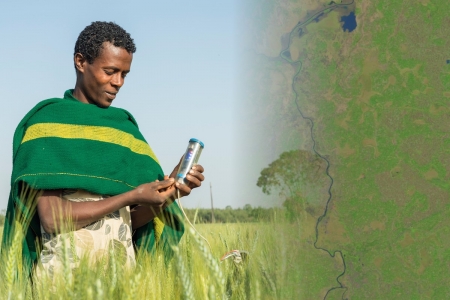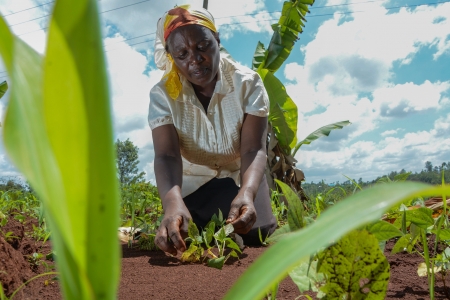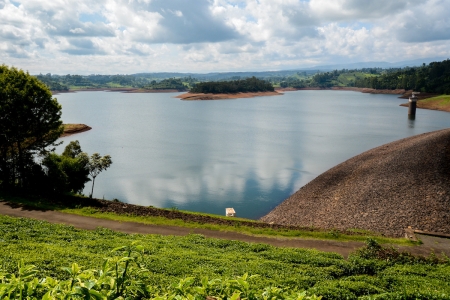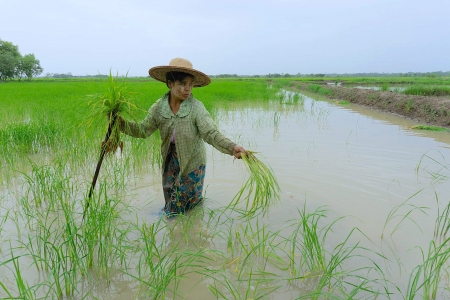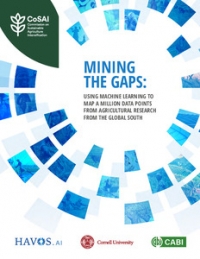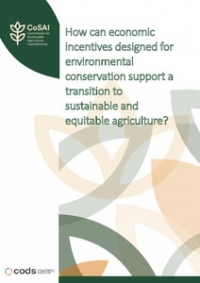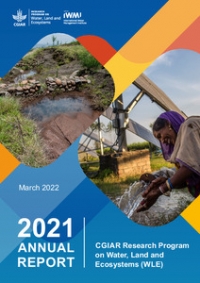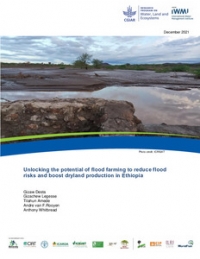Untapping the “enormous” potential of groundwater irrigation in sub-Saharan Africa could bring threefold wins of environmental sustainability, agricultural productivity and greater social equality, according to work by the International Water Management Institute (IWMI), which was presented in UK Parliament this week to the All-Party Parliamentary Group (APPG) on Agriculture and Food for Development.
With just one per cent of cultivated land in Africa currently irrigated using groundwater, experts from IWMI and elsewhere identified this as a substantial area for improvement during the event on optimising water management for smallholder farmers.
Investing in motor pumps to expand such irrigation could benefit an estimated 185 million people, generating revenues of US$22 billion a year across the continent. Better yet, solar-powered irrigation - successfully piloted in a novel way by IWMI and partners in India - would also mitigate the environmental impact of using pumps to water and land as well as allowing farmers to increase productivity and bring social benefits to the rural poor.
“There’s lots of water in Africa. The first challenge is to establish where the water is, what water it is and try to use it better,” said Lord Cameron of Dillington, APPG chairman, in his opening remarks. “There are lots of problems but also huge opportunities.”
In presenting to the group, IWMI’s Director of Partnerships and Knowledge Management, Julie van der Bliek, highlighted some of the various irrigation techniques currently used by farmers in Africa and their reach. She pointed out that smallholder agricultural water management (AWM) could increase yields by up to 300 per cent.
Already in many countries in sub-Saharan Africa, small private irrigation is more important than public irrigation schemes in terms of land area, number of people served and income. For example, in Ghana, the small private irrigation sector employs 45 times more individuals and covers 25 time more land area than the public irrigation schemes.
“Small scale irrigation is incredibly important for the food security of millions of people,” Ms van der Bliek added.
Significant challenges of water management
Yet there are also multiple challenges to overcome when exploring AWM. When it comes to pumps, in Ghana most owners belong to the richest 20 per cent, raising concerns over equity in the availability and access to water technologies.
However, the experience of Kuru Mengersa, a widow and mother-of-seven from the Ziway district of Ethiopia, shows how it is possible to overcome such barriers. She joined forces with three other farmers to buy a pump on credit and has learned how to take control of water management for her land. “Our lives have changed in every aspect,” she told IWMI, adding that the resulting additional income has given her and her family greater stability.
Other risks include sustainability and environmental impact. Roger Callow, Programme Head of the Water Policy Programme at the Overseas Development Institute (ODI) told the APPG that Africa could learn lessons from China, where a boom in the groundwater based agricultural economy has led policymakers to issue three “red lines” in their water policies. These have set limits on water withdrawal, goals for water efficiency and targets for ambient water quality.
While the source of irrigation depends on the context, cost and timeliness, the choice can have a widespread impact beyond the producers. IWMI is still exploring the impact of irrigation on nutrition but estimates that between 500,000 to 800,000 people consume contaminated vegetables in Ghana because of waste water irrigation.
The experience of China reiterates the need for careful planning in sub-Saharan Africa where such water systems are still in the early stages of mobilisation. Moreover, sub-Saharan Africa also faces the additional challenge of climate change, which is likely to exacerbate an already variable climate.
“Investing in irrigation is key to dealing with the volatility that already exists but is going to amplify over the coming decade,” Mr Callow said. “Will they make the same mistakes as China did in terms of ratcheting up huge economic and social impacts?”
Promising solutions offer greater efficiency
In IWMI’s solar-powered irrigation pilot, the potential environmental cost of pump irrigation was offset by including the option to sell back surplus solar power to the utility grid, encouraging farmers to be more efficient and lowering the risk of over-pumping.
Another complementary technology that has been tested by IWMI is wetting front detectors, which help farmers check whether their soil has been sufficiently watered, helping smallholders to measure their irrigation needs.
For Mohamed Bazza, senior officer at the UN’s Food and Agriculture Organisation (FAO), the case for investing in irrigation is clear.
“Ending hunger and poverty is viable and affordable,” he said. “There are extremely important water-related opportunities in Africa. Five per cent of available water resources are tapped for use. The rest is there to be tapped.
“We know rural development is a good investment. There is no silver bullet but what is needed instead is a broader policy approach. The fight against poverty requires action on many fronts.”
In the final presentation, Bruce Lankford, professor of water and irrigation policy at the University of East Anglia (UEA), argued that while irrigation experts and engineers played an important role, the best approach may be to listen to those in the field. He suggested the most important service for farmers when it came to water management might be information.
“It’s very difficult to match a varying supply with a varying demand and that’s because often farmers have little real knowledge of the numbers involved,” he said.
“It’s my point that instead of experts, we actually get people who live four kilometres apart to start talking to each other.”
Concluding the first of three events exploring rural infrastructure, Lord Cameron said the aim was to find a way of successfully managing water and getting a water management culture from the top to the bottom in sub-Saharan Africa.

